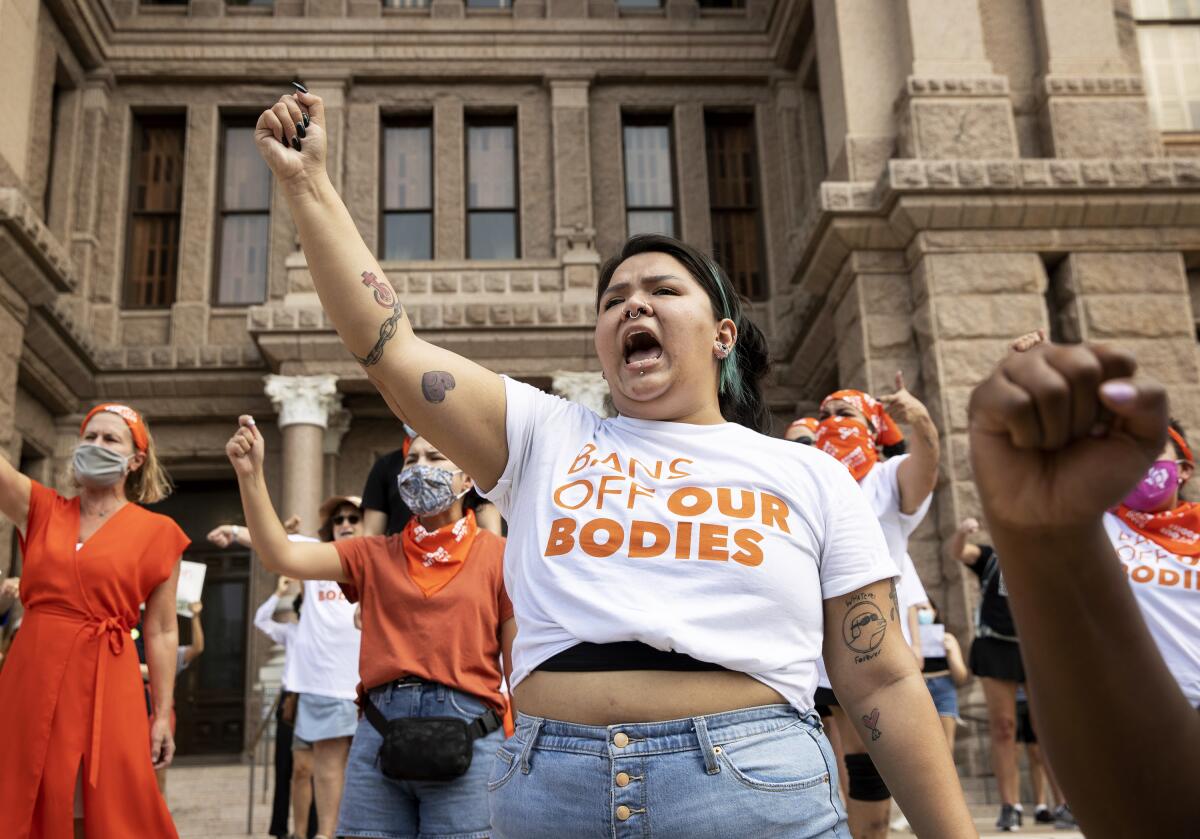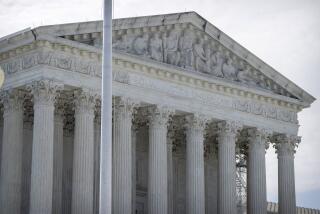Justice Department seeks order against Texas abortion law

- Share via
WASHINGTON — The Justice Department has asked a federal court in Texas to stop the enforcement of a new state law that bans most abortions in the state while it decides the case.
The Texas law, known as SB 8, prohibits abortions once medical professionals can detect cardiac activity — usually around six weeks, before some women know they’re pregnant. Courts have blocked other states from imposing similar restrictions, but Texas’ law differs significantly because it leaves enforcement to private citizens through civil lawsuits instead of criminal prosecutors.
The law went into effect earlier this month after the Supreme Court declined an emergency appeal from abortion providers asking that the law be stayed.
In Tuesday night’s emergency motion in the U.S. District Court for the Western District of Texas, Austin Division, the Justice Department said that “a court may enter a temporary restraining order or a preliminary injunction as a means of preventing harm to the movant before the court can fully adjudicate the claims in dispute.”
The case was assigned to U.S. District Judge Robert Pitman.
Last week, the Justice Department filed a lawsuit in Texas asking a federal judge to declare that the law is invalid because it unlawfully infringes on the constitutional rights of women and violates the supremacy clause of the Constitution, which says federal law supersedes state law.
The Justice Department sues Texas to block the state’s abortion law that bans the procedure after about six weeks, which it contends is an unconstitutional prohibition.
The department made a similar argument in seeking the restraining order or temporary injunction and said that its challenge would probably be successful.
“When other States have enacted laws abridging reproductive rights to the extent that S.B. 8 does, courts have enjoined enforcement of the laws before they could take effect. In an effort to avoid that result, Texas devised an unprecedented scheme that seeks to deny women and providers the ability to challenge S.B. 8 in federal court. This attempt to shield a plainly unconstitutional law from review cannot stand,” it wrote.
Under the Texas law, someone could bring a lawsuit — even if the person had no connection to the woman getting an abortion — and could be entitled to at least $10,000 in damages if the case prevailed in court.
The Texas law is the nation’s most substantial restriction on abortion rights since the Supreme Court affirmed in the landmark 1973 decision Roe vs. Wade that women have a constitutional right to an abortion.
Abortion providers have said they will comply, but already some of Texas’ roughly two dozen abortion clinics have temporarily stopped offering abortion services. Clinics in neighboring states, meanwhile, have seen a surge in patients from Texas.
More to Read
Get the L.A. Times Politics newsletter
Deeply reported insights into legislation, politics and policy from Sacramento, Washington and beyond. In your inbox three times per week.
You may occasionally receive promotional content from the Los Angeles Times.











